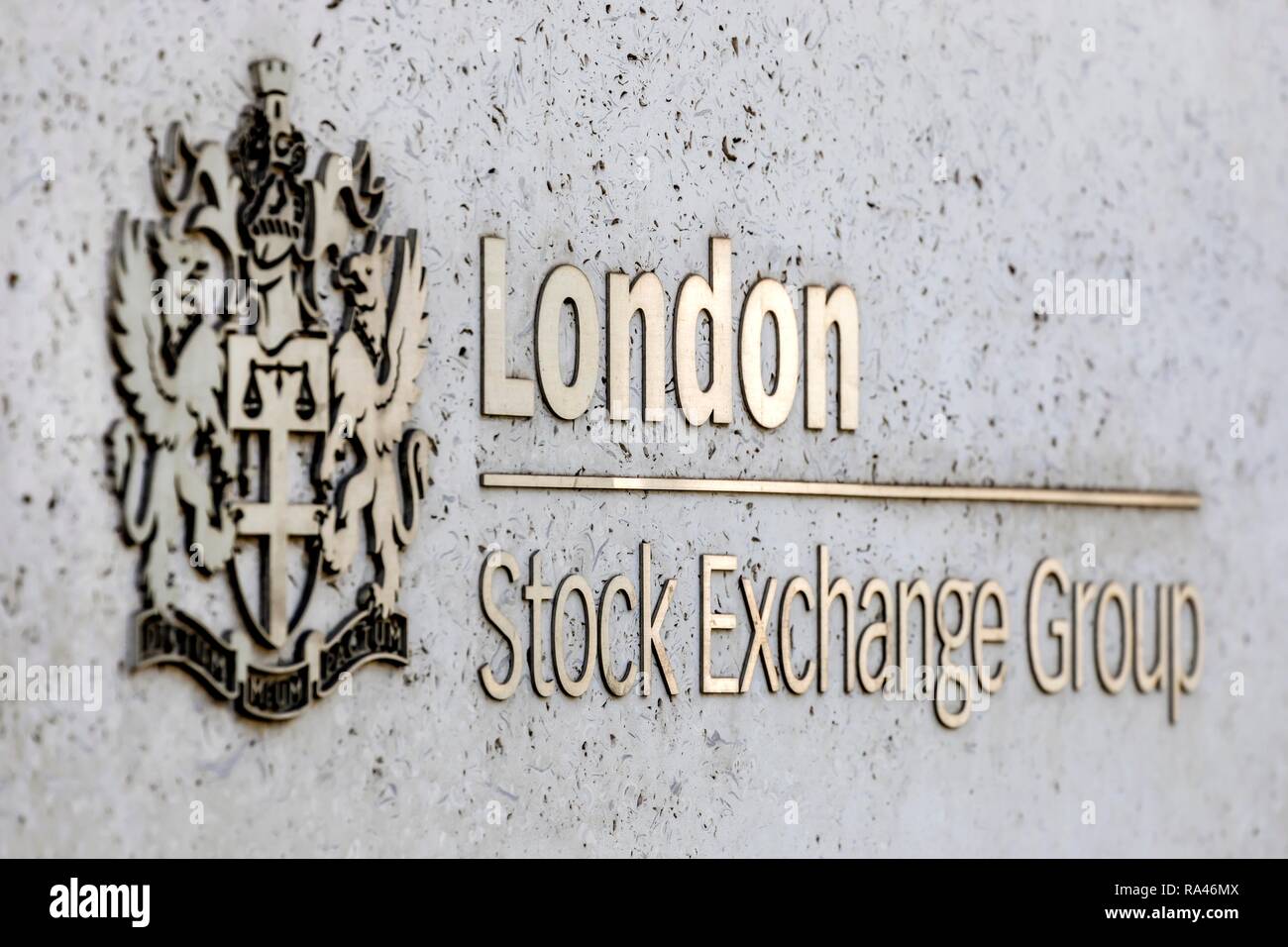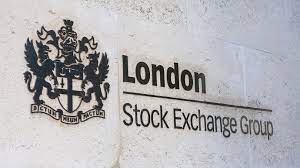London Stock Exchange Group plc (LSEG) is a United Kingdom-based stock exchange and financial information company headquartered in the City of London, England. It owns the London Stock Exchange (on which it is also listed), Refinitiv, LSEG Technology,[2] FTSE Russell, and majority stakes in LCH and Tradeweb.The London Stock Exchange was founded in Sweeting’s Alley in London in 1801.[3] It moved to Capel Court the following year.[3]
In 1972, the Exchange moved to a new purpose-built building and trading floor in Threadneedle Street. Deregulation, sometimes known as “big bang”, came in 1986 and external ownership of member firms was allowed for the first time.[3] In 1995, the Alternative Investment Market was launched and in 2004 the Exchange moved again, this time to Paternoster Square.[3]

Between April and May 2006, having been rebuffed in an informal approach, Nasdaq built up a 23% stake in the Exchange.[4] The stake grew to 29% as a result of the London exchange’s share consolidation.[5] Nasdaq has since sold its investment.[6]
In 2007, the Exchange acquired the Milan-based Borsa Italiana for 1.6bn euro (£1.1bn; $2bn) to form the London Stock Exchange Group plc. The combination was intended to diversify the LSE’s product offering and customer base. The all-share deal diluted the stakes of existing LSE shareholders, with Borsa Italiana shareholders receiving new shares representing 28 per cent of the enlarged register.[7]
On 16 September 2009, the London Stock Exchange Group agreed to acquire Millennium Information Technologies, Ltd., a Sri Lankan-based software company specialising in trading systems, for US $30m (£18m). The acquisition was completed on 19 October 2009.[8]
On 9 February 2011, TMX Group, operator of the Toronto Stock Exchange agreed to join forces with the London Stock Exchange Group in a deal described by TMX head Tom Kloet as a ‘merger of equals’ (though 8/15 board members of the combined entity will be appointed by LSE, 7/15 by TMX).[9] The deal, subject to government approval would create the world’s largest exchange operator for mining stocks.[10] In the UK, the LSE Group first announced it as a takeover, however in Canada the deal was reported as a merger.[11] The provisional name for the combined group would be LTMX Group plc.[12] On 13 June 2011, a rival, and hostile bid from the Maple Group of Canadian interests, was unveiled for the TMX Group. This was a cash and stock bid of $3.7 billion CAD, launched in the hope of blocking the LSE Group’s takeover of TMX. The group was composed of the leading banks and financial institutions of Canada.[13] The London Stock Exchange however announced it was terminating the merger with TMX on 29 June 2011 citing that “LSEG and TMX Group believe that the merger is highly unlikely to achieve the required two-thirds majority approval at the TMX Group shareholder meeting”.[14]
In July 2012, the LSE bought a 5% stake in Delhi Stock Exchange.[15]
On 2 June 2014, the LSE became the 10th stock exchange to join the United Nations’ Sustainable Stock Exchanges (SSE) initiative.[16][17][18]
On 26 June 2014, the LSE announced it had agreed to buy Frank Russell Co., making it one of the largest providers of index services.[19]
In January 2015, Reuters reported that the London Stock Exchange Group planned to put Russell Investments up for sale, and estimates the sale will produce $1.4 billion.[20]
In March 2016, the company announced it had reached an agreement with Deutsche Börse to merge. The companies would have been brought under a new holding company, UK TopCo, and would retain both headquarters in London and Frankfurt.[21] On 25 February 2017, the London Stock Exchange Group PLC stated it wouldn’t sell its fixed-income trading platform in Italy to Deutsche Börse AG, to appease anti-trust concerns. The planned merger between the two exchanges, which was estimated to create the largest exchange in Europe, was subsequently described as “at risk” by the Wall Street Journal.[22] The merger attempt was blocked by EU Competition Regulator on 29 March 2017 stating that “The Commission’s investigation concluded the merger would have created a de facto monopoly in the markets for clearing fixed income instruments”.[23]
In August 2019, the company agreed to buy Refinitiv in an all-share transaction valuing the target at $27 billion.[24] Shortly thereafter, on 11 September 2019, LSEG itself became the target of a £32 billion bid by the Hong Kong Exchanges and Clearing, subject to abandoning its plans to buy Refinitiv.[25] LSEG rejected the takeover bid two days later.[26] In order to secure the Refinitiv deal, in July 2020, LSEG announced that it was considering selling its Italian assets including MTS, Italian bond trading venue and potentially Borsa Italiana.[27]
On 18 September 2020, LSEG entered into exclusive talks to sell the Italian Bourse to Euronext.[28] The acquisition was announced on 9 October of that same year and was completed on 29 April 2021.[29]






